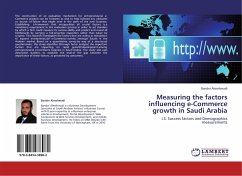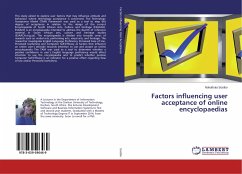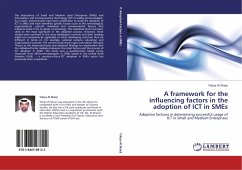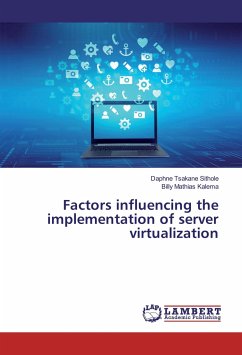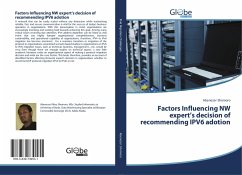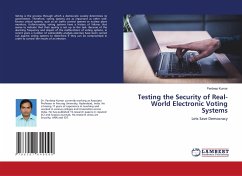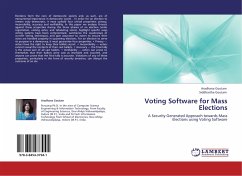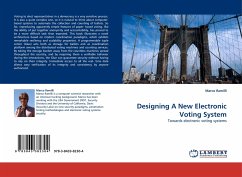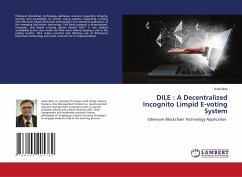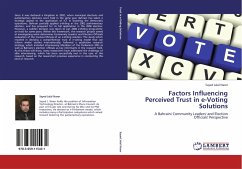
Factors Influencing Perceived Trust in e-Voting Solutions
A Bahraini Community Leaders' and Election Officials' Perspective
Versandkostenfrei!
Versandfertig in 6-10 Tagen
52,99 €
inkl. MwSt.

PAYBACK Punkte
26 °P sammeln!
Since it was declared a Kingdom in 2002, when municipal elections and parliamentary elections were held in the same year, Bahrain has taken a strategic appeal to the application of ICT in boosting the democratic operations. Bahrain partially applied e-Voting in the 2002 parliamentary election, and has prepared for its full application in the 2006 election. However, a sudden decision was taken to put 2006 e-Voting programme on hold for some years. Within this framework, this research project aimed at investigating what determines Community Leaders' and Election Officials' evaluation of the trus...
Since it was declared a Kingdom in 2002, when municipal elections and parliamentary elections were held in the same year, Bahrain has taken a strategic appeal to the application of ICT in boosting the democratic operations. Bahrain partially applied e-Voting in the 2002 parliamentary election, and has prepared for its full application in the 2006 election. However, a sudden decision was taken to put 2006 e-Voting programme on hold for some years. Within this framework, this research project aimed at investigating what determines Community Leaders' and Election Officials' evaluation of the trustworthiness of an e-Voting solution. The study which resulted in devising a comprehensive trust in e-voting model that can inform similar studies internationally, followed a qualitative research strategy, which included interviewing Members of the Parliament MPs as well as Bahraini s election officials as key informants in the research field. As this thesis will show, many researchers have addressed the challenge of elite interviewing, which has been successfully met in the case of this research, based on the researcher's previous experience in conducting this kind of research.



